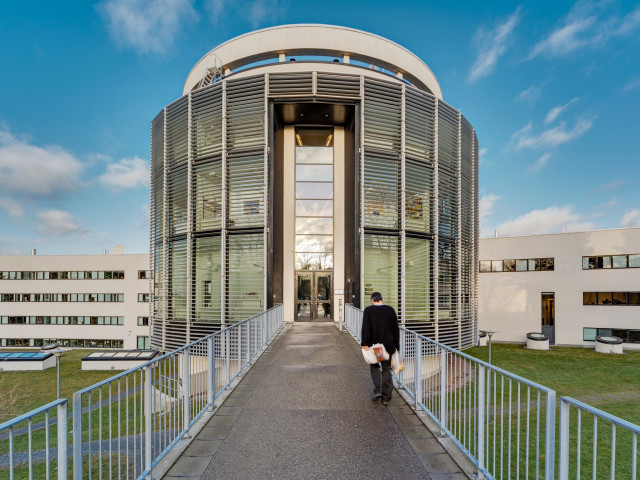Forms of Energy, ideal and real gas laws, kinetic gas theory, black-body radiation, energy transport through conduction and radiation, the laws of thermodynamics, enthalpy and entropy, adiabatic transformations, the Carnot cycle, heat engines and heat pumps, phase transitions. Physical models and validity, dimensional analysis, estimation and error analysis. Sustainable development from an energy perspective.
SI1121 Thermodynamics 6.0 credits

Information per course offering
Information for Autumn 2024 Start 26 Aug 2024 programme students
- Course location
AlbaNova
- Duration
- 26 Aug 2024 - 13 Jan 2025
- Periods
- P1 (5.0 hp), P2 (1.0 hp)
- Pace of study
17%
- Application code
50357
- Form of study
Normal Daytime
- Language of instruction
Swedish
- Course memo
- Course memo is not published
- Number of places
Places are not limited
- Target group
Sökbar för CTFYS
- Planned modular schedule
- [object Object]
- Schedule
- Part of programme
Contact
Mats Wallin (wallin@kth.se)
Course syllabus as PDF
Please note: all information from the Course syllabus is available on this page in an accessible format.
Course syllabus SI1121 (Autumn 2014–)Content and learning outcomes
Course contents
Intended learning outcomes
TEN1:
- Solve analytic problems on the “Main Contents” below and present a clear solution with a correct answer.
- Apply the theory of thermodynamics to describe everyday phenomena.
- Appraise the power and limitations of thermodynamic models.
- Make qualitative estimations, particularly focused on the energy aspects of sustainable development.
PRO1:
- Write an essay on an engineering topic using clearly structured paragraphs.
- Give a computer supported oral presentation in fron of the class on a technical topic focused on delivering a clear message to the audience.
LAB1:
- Successfully perform thermodynamic experiments following instructions in the lab PM.
Literature and preparations
Specific prerequisites
Mandatory for first year students. Prerequisits: High-school physics and mathematics
Equipment
Literature
- O. Beckman, G. Grimvall, B. Kjöllerström och T. Sundström, "Energilära", Liber 2005.
- Young & Freedman, University Physics, chapter 17-20
- Exempelsamling, teoretisk fysik. KTH.
- Grimvall, G., Basic skills in physics and engineering science, teoretisk fysik, KTH, 2006
- Laborationsinstruktioner.
Examination and completion
If the course is discontinued, students may request to be examined during the following two academic years.
Grading scale
Examination
- INL1 - Hand in Task, 1.0 credits, grading scale: P, F
- LAB1 - Laboratory Work, 1.0 credits, grading scale: P, F
- TEN1 - Written Examinations, 4.0 credits, grading scale: A, B, C, D, E, FX, F
Based on recommendation from KTH’s coordinator for disabilities, the examiner will decide how to adapt an examination for students with documented disability.
The examiner may apply another examination format when re-examining individual students.
The aim for the examination to contain problems closely tied to every-day phenomena and sustainability from an energy perspective.
Other requirements for final grade
Written exam (TEN1, 4hp), assignment (INL1, 1hp) and lab (LAB1; 1 hp)
Opportunity to complete the requirements via supplementary examination
Opportunity to raise an approved grade via renewed examination
Yes
Examiner
Ethical approach
- All members of a group are responsible for the group's work.
- In any assessment, every student shall honestly disclose any help received and sources used.
- In an oral assessment, every student shall be able to present and answer questions about the entire assignment and solution.